The UK water industry: towards a resilient and sustainable future

This conference examined the challenges and opportunities facing the UK water industry and how scientific innovation in the sector can drive future progress.
This event explored how scientific innovation can help to address some of the most significant challenges facing the UK water industry over the coming years, and examined some of the key advances that are likely to be needed within industry and academia.
The programme opened with a keynote address from Professor Louise Heathwaite CBE FRS. Three sessions on climate resilience: coping with variability and unpredictability, water pollution and quality, and decarbonisation and energy were followed by panel discussion exploring the topics and the future of the water industry further.
Conference report
The UK water industry: towards a resilient and sustainable future conference report (PDF)
Transforming our future conferences
This conference formed part of the Royal Society's industry-focussed Transforming our future series. These unique meetings feature cutting-edge science and bring together experts from industry, academia, funding bodies, the wider scientific community and government to explore and address key scientific and technical challenges of the coming decade.
Organisers
Schedule
| 09:00-09:05 |
Opening remarks

Dame Sue Ion GBE FREng FRSChair of the Royal Society Science, Industry and Translation Committee 
Dame Sue Ion GBE FREng FRSChair of the Royal Society Science, Industry and Translation Committee Dame Sue Ion FRS is Hon President of the National Skills Academy for Nuclear. She was previously Chairman of the UK Nuclear Innovation Research Advisory Board (NIRAB). She represents the UK on a number of international review and oversight committees for the nuclear sector including the Euratom Science and Technology Committee which she chaired until late 2018. She was the only non-US member of the US Department of Energy’s Nuclear Energy Advisory Committee on which she has served from 2005-2020. Sue spent 27 years with British Nuclear Fuels Ltd (BNFL) rising to the position of Chief Technology Officer in 1992, a post she held until 2006 when she assumed a number of mainly voluntary roles in Science and Engineering, including membership of the UK Council for Science and Technology and the Engineering and Physical Sciences Research Council (EPSRC). She was Vice President of the Royal Academy of Engineering 2002-2008 and chaired its MacRobert Committee 2013-2019. Sue was Deputy Chair of the Board of the University of Manchester until September 2018 and currently serves on the Board of the University of Central Lancashire. Her core expertise is in materials science and engineering associated with the nuclear sector. Sue is a member of the Chief Scientific Advisor for Wales’s Science and Innovation Advisory Council. She has been a Visiting Professor in the Department of Materials at Imperial College since 2006, holds an Honorary Professorship at the University of Manchester and is now Chair of the Royal Society Science, Industry and Translation Committee. |
|---|---|
| 09:05-09:30 |
Opening keynote

Professor Louise Heathwaite CBE FRS, Lancaster University, UK

Professor Louise Heathwaite CBE FRS, Lancaster University, UKLouise Heathwaite is a hydrochemist who combines field and modelling research to understand the environmental impact of land use on freshwater quality. Her work on nutrient runoff from agricultural land informs our understanding of eutrophication in rivers and underpins diffuse pollution models worldwide. She advanced in-situ high-frequency monitoring of nitrogen and phosphorus fractions in rivers providing unique insight into nutrient cycling that support policy interventions to reduce water quality degradation. She is a distinguished professor in the Lancaster Environment Centre and Executive Chair of the Natural Environment Research Council, UKRI. She is also chair of the Science Advisory Council of the UK's Department for Environment, Food and Rural Affairs (Defra) and independent commissioner for the Geospatial Commission in the UK’s Department for Science, Innovation and Technology (DSIT). She previously served as Chief Scientific Adviser to the Scottish Government for Rural Affairs, Food and Environment. Louise originally graduated from the University of East Anglia with a first-class degree in Environmental Sciences and has a PhD in Hydrochemistry from Bristol University. She was awarded a CBE in 2018 for services to scientific research and scientific advice to government and elected Fellow of the Royal Society in 2023. |
Chair
Professor John Beddington CMG FRS, Government Office for Science, UK
Professor John Beddington CMG FRS, Government Office for Science, UK
| 09:40-09:55 |
Strategic systems analysis of infrastructure options to ensure water supply resilience in extreme droughts
England’s water supplies face growing pressures from climate change, population growth and the need to reduce abstractions to restore the natural environment. A 1 in 500 drought resilience standard was proposed by the National Infrastructure Commission in 2018 and is now being implemented by the water industry. However, until quite recently, it was not actually known how England’s water supplies would respond to droughts that are more extreme than the worst historical drought, or how frequently the most severe water restrictions could be applied. Thanks to a programme of research by UKRI, the water industry, the Environment Agency and Ofwat, there is now a National System Simulation Model, which will be described in this talk. The modelling is being used to prioritize adaptation interventions and stress-testing possible new supply infrastructure in a wide range of possible future drought conditions. This talk will explain the current state of the art in national drought risk analysis, and explain gaps and areas for future research in climate modelling, hydrology, systems analysis and demand management. Professor Jim Hall FREng, University of Oxford, UK
Professor Jim Hall FREng, University of Oxford, UKJim Hall is Professor of Climate and Environmental Risks in the University of Oxford. Prof Hall is internationally recognised for his research on risk analysis and decision making under uncertainty for water resource systems, flood and coastal risk management, infrastructure systems and adaptation to climate change. Professor Hall is a member of the Prime Minister's Council for Science and Technology, Commissioner of the National Infrastructure Commission and Vice President of the Institution of Civil Engineers. His group developed the first national water resource systems simulation model for England and Wales which is being used to plan water infrastructure in England. Prof Hall conceived of, and now chairs, the UK’s Data and Analytics Facility for National Infrastructure (DAFNI). He was editor of the journal Water Resources Research from 2017 to 2022. |
|---|---|
| 09:55-10:10 |
Sustainable drainage systems: future innovations
Sustainable Drainage Systems (SuDS) have been delivered for over 20 years, but perhaps the design and development of them has stagnated. To get out of the ‘SuDS rut’, it is time to shake things up a bit, and to deliver better designs that mitigate against the effects of climate change in towns and cities. Infrastructure must be ready for periods of heat, heavy rainfall events, sustained droughts and more. Well-designed SuDS can help to cope with these events, and, by going back to basics, substantial habitats for wildlife can be made too, creating a refuge from the hot and dusty city life. 
Jo BradleyStormwater Shepherds 
Jo BradleyStormwater Shepherds Jo Bradley has worked on many aspects of water management during her 30-year career in the UK. She completed 28 years at the Environment Agency where she focussed on many pollution prevention topics but in the last decade, Jo's attention has been on pollution from urban surfaces and roads. She worked for Sustainable Drainage Systems (SDS) Limited for four years, specifying stormwater treatment devices in sustainable drainage system schemes. In September 2020, she became Director of Operations for Stormwater Shepherds UK where she is now dedicated to the pursuit of better stormwater management, and the development of a funding mechanism to deliver that management. |
| 10:10-10:25 |
Innovations in water re-use and recycling
There is not enough water - at least, not in the form we want. Current analysis indicates water supply-demand deficits in the UK will become critical in the near future if we do nothing. So, what can be done? Firstly, demand needs to be revisited. The average value stubbornly remains around 140 litres/person/day. Specifically, more focus is needed to targeted areas of excessive use with many people in dense urban areas already using less than 100 litres/person/day. The gain of reducing average demand significantly goes beyond water demand and has beneficial impacts on sewer overflows, wastewater treatment and emerging resource recovery activities. Irrespective of this, we need to start recycling and reusing water at a range of scales from single households to large scale indirect reuse of processed sewage effluent. The latter requires post treatment with technology that mirrors that to produce feed water for hydrogen production from electrolysis. There is clearly synergy to be benefited from, such as utilising the waste pure oxygen for wastewater treatment. However, not everything should or can be large scale; for instance, individual house nature-based solution systems can offset demand for garden irrigation whilst enhancing garden aesthetics and improve mental well-being and environmental education. Overall, the options are legion, but what will do? 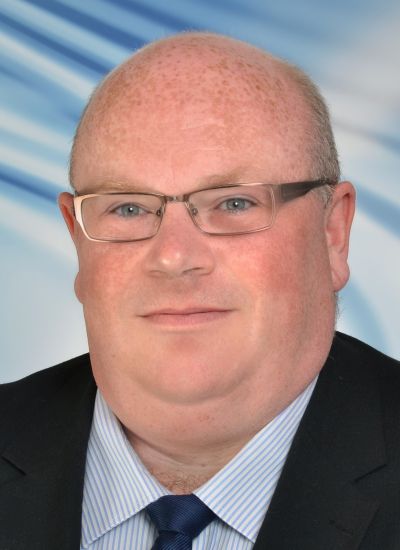
Professor Bruce JeffersonCranfield University 
Professor Bruce JeffersonCranfield University Bruce Jefferson is Professor of Water Engineering at Cranfield University. A chemical engineer with a BEng and PhD from Loughborough University, he joined the staff in Water Sciences at Cranfield in 1997. He was subsequently appointed to the post of Senior Research Fellow in 2003 and the Senior Lecturer in 2006. Other current posts include visiting positions at RMIT (Australia), the University of New South Wales (Australia) and the University of Johannesburg (South Africa). Professor Jefferson's research interests involve understanding how the underlying process pathways can be better managed to deliver a paradigm shift in how we apply technology for sewage treatment and drinking water production. Current activities involve work on, resource recovery, anaerobic sewage treatment, low energy wastewater processes for nutrient removal, control of NOM, algae and micropollutants in catchments and treatment, and advanced oxidation processes. |
| 10:25-10:40 |
Leakage research
The water industry has committed to halving leakage by 2050. Since the 1990s, leakage has been significantly reduced, but the increasing challenge of balancing water supply with protection of the natural environment means that it needs to be reduced further than ever. There are two significant challenges facing water companies to reach the levels of reduction needed: the impacts of climate change on leakage breakout and the reduction in capability to detect leakage due to the changing composition of network materials. This talk will show the nature of the challenges, show what work is being carried out to tackle the issues and act as a call for further assistance from the scientific community for innovation. 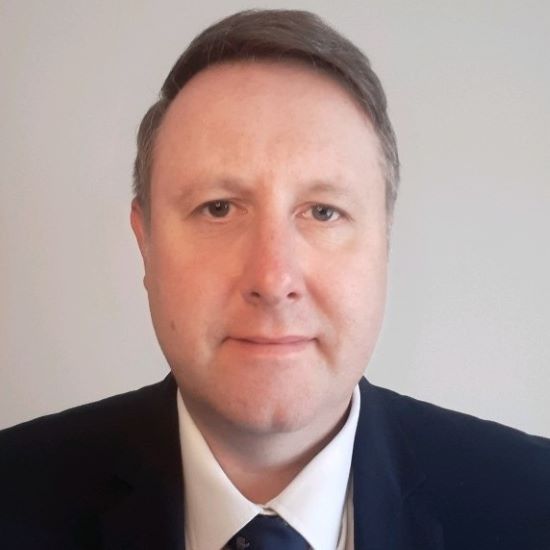
James CurtisAffinity Water 
James CurtisAffinity Water James Curtis is Head of Leakage at Affinity Water. Leaving university with a degree in Environmental Studies, James has worked in the water industry for over 20 years. This has been predominantly in below-ground asset management, specialising in leakage management for more than half that time. Having previously turned around failing leakage performance at Cambridge Water and South Staffordshire Water, he joined Affinity Water in 2021 to help deliver one of the largest percentage leakage reductions in AMP7 (the seventh Asset Management Period planned by the UK water industry, running from 2020-25) and prepare the company for the journey to a 50% reduction in leakage by 2050. |
| 10:40-11:00 |
Q&A and discussion session
Professor Jim Hall FREng, University of Oxford, UK
Professor Jim Hall FREng, University of Oxford, UKJim Hall is Professor of Climate and Environmental Risks in the University of Oxford. Prof Hall is internationally recognised for his research on risk analysis and decision making under uncertainty for water resource systems, flood and coastal risk management, infrastructure systems and adaptation to climate change. Professor Hall is a member of the Prime Minister's Council for Science and Technology, Commissioner of the National Infrastructure Commission and Vice President of the Institution of Civil Engineers. His group developed the first national water resource systems simulation model for England and Wales which is being used to plan water infrastructure in England. Prof Hall conceived of, and now chairs, the UK’s Data and Analytics Facility for National Infrastructure (DAFNI). He was editor of the journal Water Resources Research from 2017 to 2022. 
Jo BradleyStormwater Shepherds 
Jo BradleyStormwater Shepherds Jo Bradley has worked on many aspects of water management during her 30-year career in the UK. She completed 28 years at the Environment Agency where she focussed on many pollution prevention topics but in the last decade, Jo's attention has been on pollution from urban surfaces and roads. She worked for Sustainable Drainage Systems (SDS) Limited for four years, specifying stormwater treatment devices in sustainable drainage system schemes. In September 2020, she became Director of Operations for Stormwater Shepherds UK where she is now dedicated to the pursuit of better stormwater management, and the development of a funding mechanism to deliver that management. 
Professor Bruce JeffersonCranfield University 
Professor Bruce JeffersonCranfield University Bruce Jefferson is Professor of Water Engineering at Cranfield University. A chemical engineer with a BEng and PhD from Loughborough University, he joined the staff in Water Sciences at Cranfield in 1997. He was subsequently appointed to the post of Senior Research Fellow in 2003 and the Senior Lecturer in 2006. Other current posts include visiting positions at RMIT (Australia), the University of New South Wales (Australia) and the University of Johannesburg (South Africa). Professor Jefferson's research interests involve understanding how the underlying process pathways can be better managed to deliver a paradigm shift in how we apply technology for sewage treatment and drinking water production. Current activities involve work on, resource recovery, anaerobic sewage treatment, low energy wastewater processes for nutrient removal, control of NOM, algae and micropollutants in catchments and treatment, and advanced oxidation processes. 
James CurtisAffinity Water 
James CurtisAffinity Water James Curtis is Head of Leakage at Affinity Water. Leaving university with a degree in Environmental Studies, James has worked in the water industry for over 20 years. This has been predominantly in below-ground asset management, specialising in leakage management for more than half that time. Having previously turned around failing leakage performance at Cambridge Water and South Staffordshire Water, he joined Affinity Water in 2021 to help deliver one of the largest percentage leakage reductions in AMP7 (the seventh Asset Management Period planned by the UK water industry, running from 2020-25) and prepare the company for the journey to a 50% reduction in leakage by 2050. |
Chair

Dr Mar Batista
Anglian Water

Dr Mar Batista
Anglian Water
Dr Mar Batista is Anglian Water Research and Insights Manager responsible for the leadership, strategic direction, and effective oversight of the delivery of Anglian Water's research portfolio.
Dr Batista has Bachelor's in Agricultural Engineering by the Valencia Polytechnic University, Spain, a Master's in Environment and Natural Resources - Sustainable Water and Sanitation, Health and Development by the Norwegian University of Life Science, Norway and a Doctorate in Water from Cranfield University, United Kingdom.
Dr Batista has more than 15 years of experience in the water sector. Before joining Anglian Water, she worked as a consultant in Spain and as Head of Programmes at British Water collaborating with UK and international water and wastewater companies, supply chain companies, government, and stakeholders across the sector. This has provided her with an excellent understanding of current and future water and environmental challenges. She is passionate about connecting people and ideas toward a sustainable future.
| 11:35-11:50 |
Nurturing innovation and experimentation for long-term collaboration and relevance in large organisations
Innovation is imperative for long-term competitiveness, relevance and a sustainable future. However, adopting innovation in large organisations presents a multifaceted challenge in today's rapidly evolving business landscape. Large organisations, often characterised by established processes, hierarchies, and risk-averse cultures, face resistance to change. The inertia of existing systems and structures can impede the assimilation of novel ideas and technologies. Moreover, innovation necessitates investment in research, development, and training, posing financial constraints. The shift towards innovation may also provoke employee anxiety and uncertainty, demanding effective change management strategies. Achieving a balance between sustaining current operations and nurturing innovation can strain resources and leadership bandwidth. Further complexity arises when navigating regulatory, compliance, and legal frameworks. This talk will outline ongoing barriers faced within industry to fostering a culture that encourages experimentation and effective co-ordination across diverse departments. Drawing on case studies, Steve will then discuss possible approaches to overcoming these barriers. 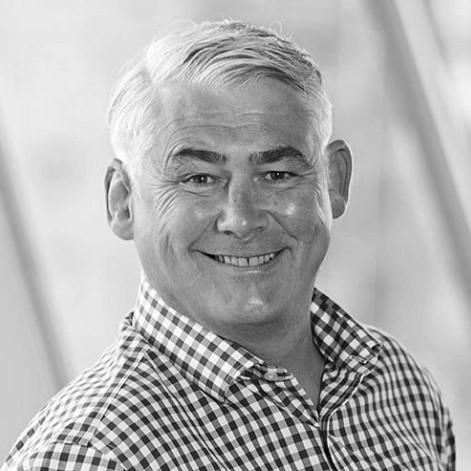
Steve HanslowSiemens UK & Ireland 
Steve HanslowSiemens UK & Ireland Steve Hanslow is Head of Water & Waste Water, Siemens UK & Ireland, and has worked at Siemens for more than 25 years. As a result, he understands the issues facing the UK water industry and works closely alongside Global Water Sector HQ advising on the challenges to develop value based solutions and technologies for the water industry. Steve also oversees a number of teams, closely collaborating with the supply chain to meet the challenges around asset performance, operational efficiency, and data acquisition and visualisation, alongside ongoing themes within the Water & Waste Water sector, including: the Internet of Things, automation, Industry 4.0, digitisation, productivity, and Connected Manufacturing. |
|---|---|
| 11:50-12:05 |
Integrated catchment management – working with others on farm to help improve water quality
Farmers play an important role in producing food and other raw materials, supporting rural economies and managing landscape and habitats, through which our water courses flow. Good farm and land management can go a long way to help address issues of water quality which come from many centuries of human activity, including agriculture. This talk will explore examples of what is being done at farm level, working with catchment partners, to improve water quality and what more can be achieved in the coming years to address this important subject. |
| 12:05-12:20 |
Novel technologies and innovations for addressing micropollutants
The subtle impact to water quality posed by micropollutants requires technological solutions beyond conventional treatment. One class of micropollutants is particularly challenging: pharmaceuticals. These chemicals are indispensable to society but can be detrimental to the aquatic environment. Recent progress in legislation opened market opportunities which will lead to commercialisation of a new assortment of quaternary treatment technologies. Research and development will provide solutions and the cost of implementation and operation will sustains another niche economy. Combinations of existing technologies are likely to become the primary choices for the water industry. Yet, it will require substantive vision in innovation to guarantee sustainability in favour of technological myopia. 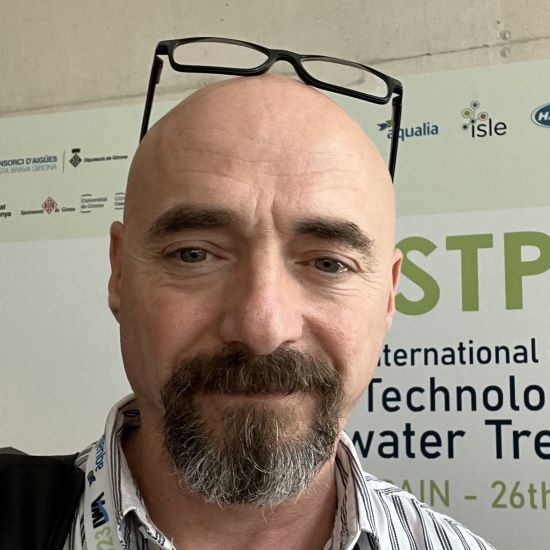
Dr Fabio BacciGlanua Group Ltd 
Dr Fabio BacciGlanua Group Ltd Fabio Bacci is a Chartered Water and Environmental Manager specialising in emerging pollutants. He was awarded his PhD by University College Cork in 2017 and is currently an MBA candidate at the University of Limerick. In his capacity as Innovation Manager of the Glanua Group, Dr Bacci works on business development for innovation, adhering to the pragmatic principle that progress must be governed by an equilibrium between environmental stewardship and the essential advancements necessary to ensure societal well-being. Dr Bacci founded the British Water Micropollutants Focus Group in 2020 and acted as convenor of the group. His ambition is to continue cultivating an ethic of contribution to make emerging water quality challenges a collective mission of the water industry. He is currently researching into non-financial disclosure of sustainability- and climate-related information in annual reports by public limited companies with the view to elucidating the true commitment of these actors to safeguarding the environment. |
| 12:20-12:35 |
Implementing next-generation wastewater treatment technologies to meet new challenges
Climate change, river water quality, biodiversity and the sustainable use of resources are just some of the major challenges facing water utilities in the UK and globally. This talk will outline how Severn Trent (one of the largest water and wastewater utility companies in England) is developing, testing, and implementing circular economy, low carbon wastewater treatment technologies to meet these challenges. The talk will cover activities at Severn Trent's Resource Recovery and Innovation Centre at Spernal Wastewater Treatment Plant (WwTP) where full scale trials to test the feasibility, viability and desirability of novel wastewater treatment technologies have been undertaken and how they are now implementing these technologies at full scale including at Strongford WwTP, Stoke-on-Trent - Severn Trent's net zero hub site. 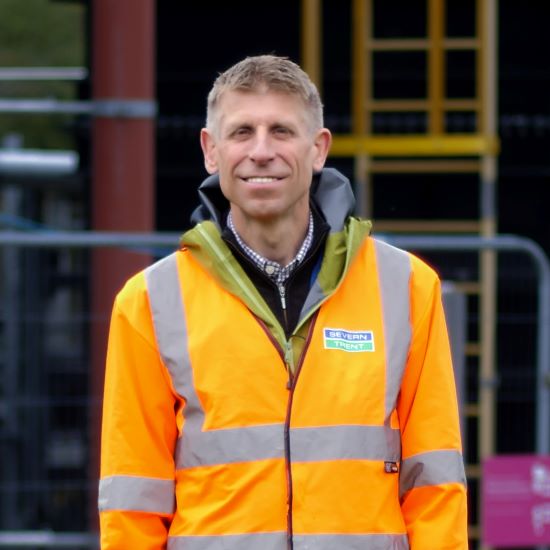
Peter ValeSevern Trent Water 
Peter ValeSevern Trent Water Pete Vale is the Carbon and Circular Economy Architect in Severn Trent's Innovation Team. He has a degree in Environmental Science from the University of Sheffield and a master's degree in water and wastewater engineering from Cranfield University. Pete has worked in R&D and innovation in the water industry for the last 20 years and has played an important role in developing and implementing Severn Trent's wastewater treatment strategy. Over the past decade he has worked on nutrient removal and recovery processes, removal of emerging contaminants and low energy processes some of which have now been implemented at full scale. His current area of focus is on developing and evaluating technologies that will deliver low carbon, low energy, material recovery treatment flowsheets that will help Severn Trent deliver on its commitment to be net zero carbon emitters by 2030. |
| 12:35-12:50 |
Potential applications of AI and other emergent technologies to the water industry
In this talk, Julie will reflect on the previous talks in the session and discuss some of the emerging technologies in the computer science space, and will suggest how they may be applied to problems in the water industry in the future. Professor Julie McCann, Professor of Computer Systems, Imperial College London
Professor Julie McCann, Professor of Computer Systems, Imperial College LondonProf Julie A. McCann is Professor of Computer Systems at Imperial College London (IC), where she leads the Adaptive Embedded Systems Engineering Research Group, is Director for Imperial Centre for Smart Connected Futures, Co-Directors of the Intel Collaborative Research Institute for Sustainable Cities and the NEC Smart Water Systems Lab and has many other substantive projects with industry and academia with a focus on networking and sensing/actuation infrastructures to support environments such as smart cities, water and gas networks, energy/water/food nexus, precision farming and has a patented sensing infrastructure for sensorless industrial equipment monitoring. Her research centres on highly decentralized and self-organizing, scalable embedded frugal computing systems. Publishing in A* venues, she is a Fellow of the British Computer Society and is the Associate Editor for ACM TAAS, Chair for the ACM SASO, IEEE SECON, SMARTCOMP has been on the programme committee for IEEE INFOCOM, ACM UBICOMP and many more. |
| 12:50-13:10 |
Q&A and discussion session
Professor Julie McCann, Professor of Computer Systems, Imperial College London
Professor Julie McCann, Professor of Computer Systems, Imperial College LondonProf Julie A. McCann is Professor of Computer Systems at Imperial College London (IC), where she leads the Adaptive Embedded Systems Engineering Research Group, is Director for Imperial Centre for Smart Connected Futures, Co-Directors of the Intel Collaborative Research Institute for Sustainable Cities and the NEC Smart Water Systems Lab and has many other substantive projects with industry and academia with a focus on networking and sensing/actuation infrastructures to support environments such as smart cities, water and gas networks, energy/water/food nexus, precision farming and has a patented sensing infrastructure for sensorless industrial equipment monitoring. Her research centres on highly decentralized and self-organizing, scalable embedded frugal computing systems. Publishing in A* venues, she is a Fellow of the British Computer Society and is the Associate Editor for ACM TAAS, Chair for the ACM SASO, IEEE SECON, SMARTCOMP has been on the programme committee for IEEE INFOCOM, ACM UBICOMP and many more. 
Peter ValeSevern Trent Water 
Peter ValeSevern Trent Water Pete Vale is the Carbon and Circular Economy Architect in Severn Trent's Innovation Team. He has a degree in Environmental Science from the University of Sheffield and a master's degree in water and wastewater engineering from Cranfield University. Pete has worked in R&D and innovation in the water industry for the last 20 years and has played an important role in developing and implementing Severn Trent's wastewater treatment strategy. Over the past decade he has worked on nutrient removal and recovery processes, removal of emerging contaminants and low energy processes some of which have now been implemented at full scale. His current area of focus is on developing and evaluating technologies that will deliver low carbon, low energy, material recovery treatment flowsheets that will help Severn Trent deliver on its commitment to be net zero carbon emitters by 2030. 
Steve HanslowSiemens UK & Ireland 
Steve HanslowSiemens UK & Ireland Steve Hanslow is Head of Water & Waste Water, Siemens UK & Ireland, and has worked at Siemens for more than 25 years. As a result, he understands the issues facing the UK water industry and works closely alongside Global Water Sector HQ advising on the challenges to develop value based solutions and technologies for the water industry. Steve also oversees a number of teams, closely collaborating with the supply chain to meet the challenges around asset performance, operational efficiency, and data acquisition and visualisation, alongside ongoing themes within the Water & Waste Water sector, including: the Internet of Things, automation, Industry 4.0, digitisation, productivity, and Connected Manufacturing. 
Dr Fabio BacciGlanua Group Ltd 
Dr Fabio BacciGlanua Group Ltd Fabio Bacci is a Chartered Water and Environmental Manager specialising in emerging pollutants. He was awarded his PhD by University College Cork in 2017 and is currently an MBA candidate at the University of Limerick. In his capacity as Innovation Manager of the Glanua Group, Dr Bacci works on business development for innovation, adhering to the pragmatic principle that progress must be governed by an equilibrium between environmental stewardship and the essential advancements necessary to ensure societal well-being. Dr Bacci founded the British Water Micropollutants Focus Group in 2020 and acted as convenor of the group. His ambition is to continue cultivating an ethic of contribution to make emerging water quality challenges a collective mission of the water industry. He is currently researching into non-financial disclosure of sustainability- and climate-related information in annual reports by public limited companies with the view to elucidating the true commitment of these actors to safeguarding the environment. |
Chair
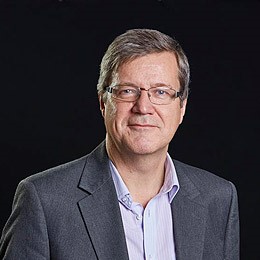
Professor David Butler FREng
University of Exeter

Professor David Butler FREng
University of Exeter
David Butler is as an internationally-recognised academic, manager, mentor and consultant in the water sector. He is professor of water engineering, a chartered civil engineer and a fellow of the Royal Academy of Engineering, the Institution of Civil Engineers and the Chartered Institution of Water & Environmental Management.
Following positions at consultant Arups, London South Bank University and Imperial College London, he is formerly Head of Engineering and currently Co-Director of the Centre for Water Systems at the University of Exeter. He is an expert in urban water management with specialisms including sewerage, urban drainage, flooding, water harvesting and reuse, sustainability and resilience, water-energy interactions and digital systems. He has published widely including over 350 technical papers, key texts and several practice-based reports. He is co-founder and emeritus editor-in-chief of the Urban Water Journal.
| 13:10-13:25 |
Perspectives on the effects of water quality on health
Professor Sir Chris Whitty, FMedSci
Professor Sir Chris Whitty, FMedSciProfessor Chris Whitty is Chief Medical Officer (CMO) for England, the UK government’s Chief Medical Adviser and head of the public health profession. He represents the UK on the Executive Board of the World Health Organization. Chris is a practising NHS Consultant Physician at University College London Hospitals (UCLH) and the Hospital for Tropical Diseases, and Gresham Professor of Physic at Gresham College. Chris is an epidemiologist and has undertaken research and worked as a doctor in the UK, Africa and Asia. He was Professor of Public and International Health at the London School of Hygiene and Tropical Medicine (LSHTM) before becoming CMO. Chris was the Chief Scientific Adviser for the Department of Health and Social Care (DHSC) from January 2016 to August 2021, with overall responsibility for the department’s research and development, including being head of the National Institute for Health Research (NIHR), the government’s major funder of clinical, public health, social care and translational research. Chris was the interim Government Chief Scientific Adviser from 2017 to 2018, including during the Novichok poisonings. Before that, he was the Chief Scientific Adviser at the Department for International Development (DFID), which included leading technical work on the West Africa Ebola outbreak and other international emergencies. |
|---|
Chair
Professor Guangtao Fu, University of Exeter
Professor Guangtao Fu, University of Exeter
Guangtao Fu is an associate professor of Water Infrastructure Systems at the University of Exeter. He has a PhD in water resources engineering from Dalian University of Technology, China. Before joining Exeter he was a postdoctoral researcher at the University of Bristol and Imperial College London. His research focuses on conducting fundamental and applied research at the interface between water systems and decision making by combining simulation, optimization, and analytics tools to tackle water management problems. He has published over 100 journal and conference papers and won a number of awards including the prestigious ASCE ‘Quentin Martin Best Practice Oriented’ research paper award in 2014.
In his Industry Fellowship, he is investigating how to develop smart water infrastructure systems using Information and Communication Technologies and big data in the water industry in response to a changing environment through collaboration with Northumbrian Water Limited.
| 14:25-14:40 |
Decarbonising existing and new infrastructure: future challenges
This talk will give an overview of the main decarbonisation challenges for managing whole life carbon emissions in the UK water sector. It will discuss the regulatory and policy landscape, how our water sector fits to the national net zero transition and the systemic challenges when planning for maintaining, refurbishing and creating new infrastructure to meet different performance requirements. The talk will also summarise current decarbonisation activities driven by the water sector value chain as well as future action we will need to take to help us accelerate our decarbonisation efforts and play our part to the national and global net zero transition. 
Maria ManidakiMott MacDonald 
Maria ManidakiMott MacDonald Maria is a Chartered Engineer and a Technical Director for Decarbonisation at Mott MacDonald. Her specialism is in infrastructure planning and decarbonisation. She is the lead author of PAS 2080 (2016 and 2023), global standard for managing infrastructure carbon that meets World Trade Organization requirements, and co-author of the UK HM Treasury Infrastructure Carbon Review. Maria has worked with many infrastructure asset owners and their supply chains to help define their carbon management strategies and embed carbon management into infrastructure delivery programmes of work through best practice. She is a member of the UK Green Construction Board and has been involved in various Industry Forums to help shape the decarbonisation agenda, including the Institute of Civil Engineers Carbon Project. She is a visiting Lecturer on Sustainability and Low Carbon Practices at Cranfield University, a Member of the Industrial Advisory Panel and is also a member of the UK Water Net Zero Expert Panel. |
|---|---|
| 14:40-14:55 |
The water-energy-climate cycle: from vicious to virtuous?
Water, energy and climate are intricately linked at multiple scales and in multiple ways. Managing the interactions and interrelationships between them is one of the key challenges of our time. This talk will illustrate the main elements of the water-energy-climate cycle and explore some important interactions and interventions through the lens of urban water services. 'Vicious' interactions include on the one hand the significant water use implications of different energy generation technologies and on the other the energy/GHG emission implications of providing essential water services. A number of 'virtuous' interventions will be explored, with the emphasis on scaled up, innovative household-level approaches where (arguably) the biggest decarbonisation gains can be made. Also discussed will be the issue of unintended consequences and how to achieve a balance, ideally a win-win, between climate mitigation and adaptation strategies. 
Professor David Butler FREngUniversity of Exeter 
Professor David Butler FREngUniversity of Exeter David Butler is as an internationally-recognised academic, manager, mentor and consultant in the water sector. He is professor of water engineering, a chartered civil engineer and a fellow of the Royal Academy of Engineering, the Institution of Civil Engineers and the Chartered Institution of Water & Environmental Management. Following positions at consultant Arups, London South Bank University and Imperial College London, he is formerly Head of Engineering and currently Co-Director of the Centre for Water Systems at the University of Exeter. He is an expert in urban water management with specialisms including sewerage, urban drainage, flooding, water harvesting and reuse, sustainability and resilience, water-energy interactions and digital systems. He has published widely including over 350 technical papers, key texts and several practice-based reports. He is co-founder and emeritus editor-in-chief of the Urban Water Journal. |
| 14:55-15:10 |
Reducing emissions from wastewater treatment: recent innovations and future priorities
The commitment of the UK wastewater sector to carbon neutrality by 2030 has placed significant pressure on the sector to transition to a low-carbon wastewater management model. Wastewater treatment emissions, particularly nitrous oxide (N2O), contribute significantly to greenhouse gas emissions and can account for up to 80% of the operational carbon footprint at treatment plants. Existing reporting practices in the UK (ie. Carbon Accounting Workbook) currently underestimate these emissions while the dissolved greenhouse gases (GHGs) alone could contribute to 30-70% of the carbon footprint of the sector and are currently not reported. Moreover, operational emissions are showing an increasing trend due to increasingly stricter discharge standards. Therefore, direct GHG emissions in wastewater pose the most significant challenge towards the decarbonization goals of the sector. Over the past decade, real-field N2O monitoring across more than 90 systems has provided invaluable insights. These studies have revealed complex and site-specific pathways leading to N2O emissions. Despite advancements, significant knowledge gaps remain, particularly concerning the long-term dynamics of N2O formation in the field, while long-term N2O mitigation strategies have yet to be proved. State-of-the-art emission monitoring and mitigation methodologies are emerging, with digitalization playing a transformative role. In this talk, case studies will be presented that showcase the potential of knowledge-based machine learning and data analytic in understanding and mitigating N2O emissions. Explainable algorithms translate data into actionable insights, linking N2O emissions to operational conditions and guiding mitigation strategies. These data-driven approaches can offer water professionals enhanced operational and environmental performance insights. Navigating the next decade requires innovations in emission reduction, collaborative efforts across industry, academia, and government and the engineering community. The path forward emphasizes the importance of reducing emissions for environmental health and urges a collective effort, emphasizing continuous innovation. The UK water sector's ambitious roadmap to Net Zero by 2030 serves as a beacon, but achieving this goal necessitates a profound rethinking of current practices and a rapid embrace of emerging solutions. 
Professor Evina KatsouBrunel University London 
Professor Evina KatsouBrunel University London Evina Katsou is Professor and Course Director of the Water Engineering MSc at Brunel University London. She leads the Water and Environmental Engineering group with 16 postdoctoral researchers and PhD students. She has authored 110 publications, has 12 book chapters, has made 100 presentations in International Conferences, has been the editor in 2 books, and has made 24 invited talks in conferences, renowned Universities and Research centres. Over the last eight years, Prof Katsou has developed a new research line at Brunel University: the deployment of data analytics methods and mechanistic models to identify and reconstruct complex relationships between observed and latent process variables in wastewater/water treatment plants. Her research is leading to measurement, control and mitigation of greenhouse gas emissions of treatment processes, and is being adopted to set strategies and plans for developing the AI-Based Water Engineering Solutions. Prof Katsou's research also focuses on the development and implementation of frameworks for sustainability and circularity measurement and assessment. She has participated in 40 research projects, being the coordinator and principal investigator for 27 projects (research and industrial), focusing on wastewater treatment, resource recovery and on the development and implementation of methodologies and customized tools to support decision making in the water industry. |
| 15:10-15:25 |
Moving to a Whole Life Carbon approach through innovation and collaboration
Traditional approaches to asset investment have often relied on a slightly siloed approach to assessing Capital and Operational carbon. These have also often been disconnected from cost and derived from different systems. With funding from the Ofwat Innovation Fund, Anglian Water and the @One Alliance have delivered the Enabling Whole Life Carbon in Design project designed to accelerate the infrastructure sector towards a digitally integrated Whole Life Carbon approach. This talk will explain how, alongside the digital tool and working with the new 2023 version of PAS2080, the project also developed a best practice approach to integrating whole life carbon into decision making and governance, as well as how to build organisational capacity through a suggested change management approach. The talk will also cover the project outcomes and learnings. By making carbon and cost hotspots more visual to a range of stakeholders, it is envisaged that over the coming years carbon can be considered on parity with cost. With this a better understanding of the causal link will emerge, driving reduced whole life carbon investments. 
Alex HerridgeAnglian Water and Skanska 
Alex HerridgeAnglian Water and Skanska Alex is a Chartered Environmentalist who is passionate about supporting the water industry to deliver its Net Zero goals. He has worked in the water industry since 2010 in a variety of roles with one thing in common: reducing carbon and better accounting for carbon emissions. Alex is currently the Carbon & Sustainability Manager for Anglian Water's @One Alliance working for Skanska. Alex and his team are responsible for developing the carbon reduction strategy and supporting colleagues and supply chain to achieve @One's carbon reduction goals within its £1bn design and construction programme. His current interests lie in reducing whole life carbon through enhanced design and decision making processes, enabled by better data and visualisation. He is an advocate for carbon literacy to underpin everything, supporting all colleagues and suppliers to improve their understanding of carbon and climate issues. |
| 15:25-15:45 |
Q&A and discussion session

Professor Evina KatsouBrunel University London 
Professor Evina KatsouBrunel University London Evina Katsou is Professor and Course Director of the Water Engineering MSc at Brunel University London. She leads the Water and Environmental Engineering group with 16 postdoctoral researchers and PhD students. She has authored 110 publications, has 12 book chapters, has made 100 presentations in International Conferences, has been the editor in 2 books, and has made 24 invited talks in conferences, renowned Universities and Research centres. Over the last eight years, Prof Katsou has developed a new research line at Brunel University: the deployment of data analytics methods and mechanistic models to identify and reconstruct complex relationships between observed and latent process variables in wastewater/water treatment plants. Her research is leading to measurement, control and mitigation of greenhouse gas emissions of treatment processes, and is being adopted to set strategies and plans for developing the AI-Based Water Engineering Solutions. Prof Katsou's research also focuses on the development and implementation of frameworks for sustainability and circularity measurement and assessment. She has participated in 40 research projects, being the coordinator and principal investigator for 27 projects (research and industrial), focusing on wastewater treatment, resource recovery and on the development and implementation of methodologies and customized tools to support decision making in the water industry. 
Maria ManidakiMott MacDonald 
Maria ManidakiMott MacDonald Maria is a Chartered Engineer and a Technical Director for Decarbonisation at Mott MacDonald. Her specialism is in infrastructure planning and decarbonisation. She is the lead author of PAS 2080 (2016 and 2023), global standard for managing infrastructure carbon that meets World Trade Organization requirements, and co-author of the UK HM Treasury Infrastructure Carbon Review. Maria has worked with many infrastructure asset owners and their supply chains to help define their carbon management strategies and embed carbon management into infrastructure delivery programmes of work through best practice. She is a member of the UK Green Construction Board and has been involved in various Industry Forums to help shape the decarbonisation agenda, including the Institute of Civil Engineers Carbon Project. She is a visiting Lecturer on Sustainability and Low Carbon Practices at Cranfield University, a Member of the Industrial Advisory Panel and is also a member of the UK Water Net Zero Expert Panel. 
Professor David Butler FREngUniversity of Exeter 
Professor David Butler FREngUniversity of Exeter David Butler is as an internationally-recognised academic, manager, mentor and consultant in the water sector. He is professor of water engineering, a chartered civil engineer and a fellow of the Royal Academy of Engineering, the Institution of Civil Engineers and the Chartered Institution of Water & Environmental Management. Following positions at consultant Arups, London South Bank University and Imperial College London, he is formerly Head of Engineering and currently Co-Director of the Centre for Water Systems at the University of Exeter. He is an expert in urban water management with specialisms including sewerage, urban drainage, flooding, water harvesting and reuse, sustainability and resilience, water-energy interactions and digital systems. He has published widely including over 350 technical papers, key texts and several practice-based reports. He is co-founder and emeritus editor-in-chief of the Urban Water Journal. 
Alex HerridgeAnglian Water and Skanska 
Alex HerridgeAnglian Water and Skanska Alex is a Chartered Environmentalist who is passionate about supporting the water industry to deliver its Net Zero goals. He has worked in the water industry since 2010 in a variety of roles with one thing in common: reducing carbon and better accounting for carbon emissions. Alex is currently the Carbon & Sustainability Manager for Anglian Water's @One Alliance working for Skanska. Alex and his team are responsible for developing the carbon reduction strategy and supporting colleagues and supply chain to achieve @One's carbon reduction goals within its £1bn design and construction programme. His current interests lie in reducing whole life carbon through enhanced design and decision making processes, enabled by better data and visualisation. He is an advocate for carbon literacy to underpin everything, supporting all colleagues and suppliers to improve their understanding of carbon and climate issues. |
Chair
Professor John Beddington CMG FRS, Government Office for Science, UK
Professor John Beddington CMG FRS, Government Office for Science, UK
| 16:15-17:25 |
Panel discussion
Professor Gideon Henderson FRS, University of Oxford, UK
Professor Gideon Henderson FRS, University of Oxford, UKProfessor Gideon Henderson FRS is a geochemist whose research focuses on the influence of marine chemistry on the carbon cycle and climate, and on understanding long-term climate change by study of the past. A particular expertise is the use of natural radioactive isotopes to establish the rates of oceanic processes, and the timing of past climate events. He seeks to understand components of the climate system with relevance to the future, including changes in rainfall, sea level, permafrost, and ocean circulation. He has played a leading role in establishing the international and UK GEOTRACES programmes, investigating the trace-element chemistry of the oceans. Gideon is Head of the Earth Sciences Department at the University of Oxford. Further details are at: http://www.earth.ox.ac.uk/people/profiles/academic/gideonh 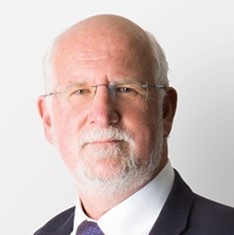
Mike WoolgarWSP in the UK 
Mike WoolgarWSP in the UK Mike Woolgar has over 40 years' practical experience in the water, urban development and renewable energy sectors in the UK, Europe and the lesser developed world. In UK he has worked on regulation, policy, advisory services, due diligence and expert services, and project preparation in the regulated utilities, flood risk management, and resources sectors. He has extensive international experience of infrastructure development including regulated and private sector water and waste systems, water resource planning, water systems development engineering, climate change and sustainable energy. He has worked in over 40 countries in Africa, Asia and the GCC (Gulf Cooperation Council). He is currently adviser to Ofwat on the development of the Haweswater Aqueduct Resilience Programme Direct Procurement for Customers (HARP DPC), the first of its kind in the water industry. He led the Independent Expert Group examining the severe flooding in London in 2021, is Lenders Technical Adviser on water and sanitation projects in Israel and Serbia. He also provides water supply and flood risk management advisory services to defence sites in UK and overseas, leads design development of the Grand Union Canal water resources transfer scheme and supports water company clients on water resources planning. 
Professor Carolyn RobertsGresham College London 
Professor Carolyn RobertsGresham College London Professor Carolyn Roberts is Emeritus Professor of Environment at Gresham College London, and a water and environment consultant. Her early career was as an academic at the University of Exeter, Head of the School of Environment at the University of Gloucestershire, and subsequently in Earth Sciences at the University of Oxford where she directed the national Environmental Sustainability Knowledge Transfer Network, on behalf of Innovate UK. She has been Chair of the Institution of Environmental Sciences, Chair of Society for the Environment, and is currently Fleet Warden of the Worshipful Company of Water Conservators, one of London's modern Livery Companies. Her research focussed on the impacts of development on rivers and groundwater in the UK, the tropics and the Mediterranean. For many years she has run her own consultancy, advising developers and local authorities on minimising damage to the natural environment, and other aspects of Environmental Impact Assessment. She was Technical Advisor to Gloucestershire County Council following the extreme River Severn floods of 2007, and has often advised the police on the movement of (dead) human bodies along rivers and canals. She continues to advise Innovate UK on grant applications for technical innovation. 
Beth CorbouldOfwat 
Beth CorbouldOfwat Beth is an experienced senior leader with a background in economic regulation and policy. She is currently the Ofwat Director responsible for water resources and environmental planning, including Ofwat's £100m Water Efficiency Fund. Previously, Beth was Head of Competition and Enforcement at the Civil Aviation Authority. Earlier in her career, Beth worked in the Office of Rail and Road, and state government roles in Australia. 
Professor Tom Stephenson FREngCranfield University and British Water 
Professor Tom Stephenson FREngCranfield University and British Water Tom Stephenson has over 40 years of professional experience in water and wastewater treatment. He is currently an Ambassador for British Water, the trade association representing the water sector supply chain in the UK and internationally. He was previously Chairman (2010-12) and a Board Director (2000-05, 2010-2014) of British Water. Professor Stephenson is a Non-Executive Director at Marsh Industries, a family-owned company that is the leading UK manufacturer of package wastewater treatment plants, separators and related products. He is also a part-time Professor of Water Sciences at Cranfield University where for over 30 years he has worked with all 10 of the water and sewage utility companies in England and Wales. His academic expertise is focussed on technologies for water, wastewater and sludge treatment, including water reuse. Other activities include membership of Water UK's Net Zero Carbon Panel and the Lee Kuan Yew Singapore International Water Prize jury. He set up Water Innovate Ltd, a Cranfield University spinout which was sold to Bluewater Bio Ltd where he was a Board Advisor until 2021. Professor Stephenson is a graduate Biochemist from the University of York and has a PhD in Civil Engineering from Imperial College London. He is a Chartered Engineer (CEng) and a Fellow of the Institution of Chemical Engineers (FIChemE). In 2010 he was elected as a Fellow of the Royal Academy of Engineering (FREng). |
|---|
Chair

Dame Sue Ion GBE FREng FRS
Chair of the Royal Society Science, Industry and Translation Committee

Dame Sue Ion GBE FREng FRS
Chair of the Royal Society Science, Industry and Translation Committee
Dame Sue Ion FRS is Hon President of the National Skills Academy for Nuclear. She was previously Chairman of the UK Nuclear Innovation Research Advisory Board (NIRAB). She represents the UK on a number of international review and oversight committees for the nuclear sector including the Euratom Science and Technology Committee which she chaired until late 2018. She was the only non-US member of the US Department of Energy’s Nuclear Energy Advisory Committee on which she has served from 2005-2020.
Sue spent 27 years with British Nuclear Fuels Ltd (BNFL) rising to the position of Chief Technology Officer in 1992, a post she held until 2006 when she assumed a number of mainly voluntary roles in Science and Engineering, including membership of the UK Council for Science and Technology and the Engineering and Physical Sciences Research Council (EPSRC). She was Vice President of the Royal Academy of Engineering 2002-2008 and chaired its MacRobert Committee 2013-2019. Sue was Deputy Chair of the Board of the University of Manchester until September 2018 and currently serves on the Board of the University of Central Lancashire.
Her core expertise is in materials science and engineering associated with the nuclear sector. Sue is a member of the Chief Scientific Advisor for Wales’s Science and Innovation Advisory Council. She has been a Visiting Professor in the Department of Materials at Imperial College since 2006, holds an Honorary Professorship at the University of Manchester and is now Chair of the Royal Society Science, Industry and Translation Committee.
